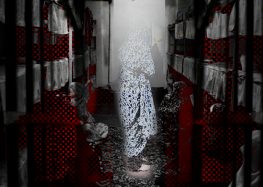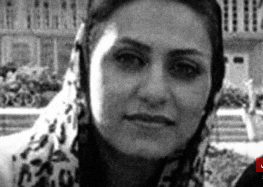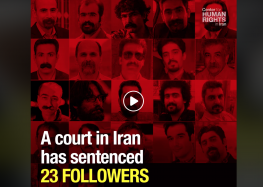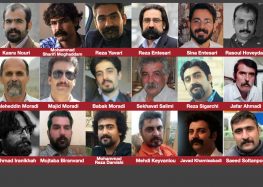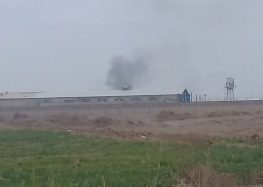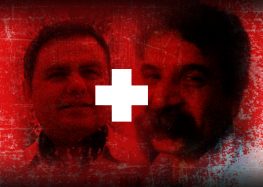Tehran Police Chief Says Man Accused of Killing Policemen Will Be “Punished by Hanging”
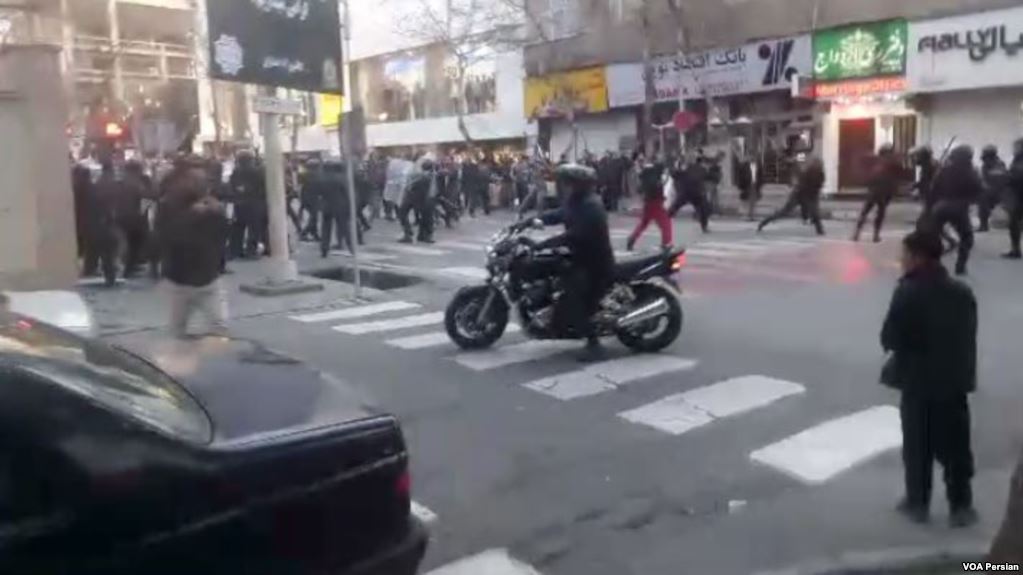
The alleged driver of a bus that was driven into three policemen and two members of the Basij volunteer militia, killing them all during recent clashes between the police and Sufi followers of the Gonabadi Order in Tehran, could be executed within weeks.
“With the coordination that has taken place with the judiciary, the bus driver that drove over the policemen will be punished by hanging before the end of the [Iranian] year [March 20, 2018],” Tehran Police Chief Gen. Hossein Rahimi said on March 1 in an interview with the state-funded Islamic Republic of Iran Broadcasting (IRIB).
The bus driver has been identified as Mohammad Salas, a Gonabadi Dervish. On February 21, a man claiming to be Salas appeared on a video in a hospital room apologizing to the families of the victims for driving the bus that killed the five men.
The Center for Human Rights in Iran (CHRI) was unable to verify the veracity of the video, which was posted on Twitter by the Fars News Agency, affiliated with the Islamic Revolutionary Guard Corps (IRGC).
“I don’t know what I was thinking at that moment. I had no intention to kill anyone. I got angry and pressed the gas,” said the man in the video. “It was out of my control… It just happened. I give my condolences. What can I do?”
Clashes broke out outside a police station in the Pasdaran neighborhood of Tehran on February 19 and 20 after police forces attacked a rally of dervishes demanding the release of a fellow Gonabadi.
The Gonabadi Dervishes’ interpretation of Islam differs from that of Iran’s ruling Muslim Shia establishment. The Islamic Republic views any alternative belief system, especially those seeking converts, as a threat to the prevailing Shia establishment and has imprisoned members of the Sufi order and expelled them from university for their faith.
CHRI reported on February 26 that approximately 170 members of the Sufi order were being treated for injuries in four hospitals in Tehran. Two of them, Mohammad Labbaf and Nematollah Riahi, were in serious condition.
During a previous press conference, Gen. Rahimi said the police contemplated using military-grade weapons against the protesters.
“Our tactful and moderate response should not be interpreted as appeasement,” he said on February 22. “We could have destroyed the agitators’ house with a rocket-propelled grenade but we acted tactfully and from a position of strength.”
While visiting injured security forces at a hospital in the capital on March 2, Tehran Prosecutor Abbas Jafari Dowlatabadi threatened to “deal seriously” with “the perpetrators of recent disturbances.”
He made no mention of a possible death sentence against the bus driver but said the drivers of two passenger cars who had also allegedly run over security forces on February 19 had been arrested and “confessed.”
On February 23, a group of political prisoners held in Rajaee Shahr Prison in Karaj, West of Tehran, issued a statement condemning the use of excessive force against the Gonabadi protesters.
“During these incidents, a number of anti-riot forces and plainclothes Basij agents resorted to violence and beat and injured the dervishes, which could have ignited sudden anger and retaliatory action by the dervishes and led to unpleasant consequences,” said the statement.

